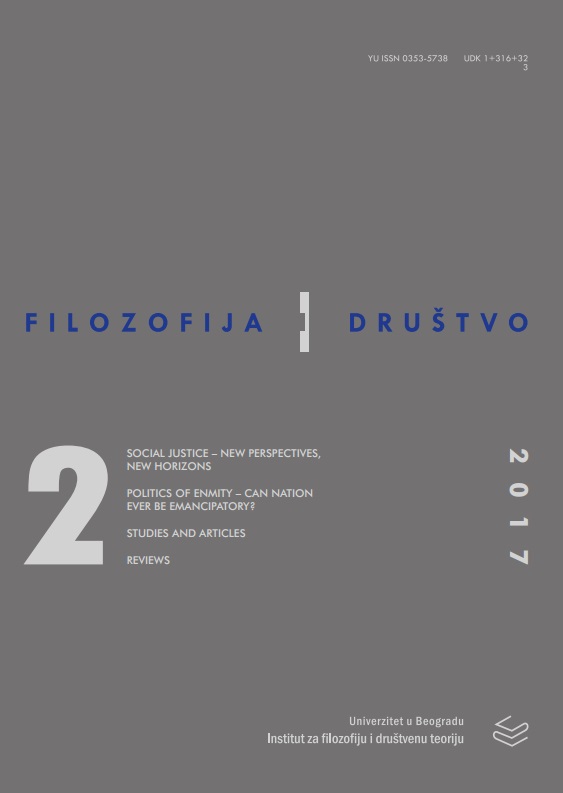Wittgenstein’s Language and Beckett: the Limits of Language and the Absurd
Wittgenstein’s Language and Beckett: the Limits of Language and the Absurd
Author(s): Marialenu AvgerinouSubject(s): Semiology, Philosophy of Language, Theory of Literature
Published by: Institut za filozofiju i društvenu teoriju
Keywords: Wittgenstein; Beckett; language; meaning; absurd; art
Summary/Abstract: This paper provides a parallel linguistic and conceptual reading of Wittgenstein’s and Beckett’s works. More specifically, the Tractatus LogicoPhilosophicus and the Philosophical Investigations are looked at in relation to the absurd plays Not I and Waiting for Godot, respectively. The limits of language as described in the Tractatus are part of the verbally and conceptually asphyxiating world brought on stage by Beckett in the monologue Not I, while the transition to ‘language games’ of the Philosophical Investigations can be identified in parts of Waiting for Godot. The suggested conclusion is that Wittgenstein’s expression of the ineffable, the problematic use of language and (its) meaning can be and have been expressed in a form of art, while the meanings of Wittgenstein’s writings are in harmony with their stylistic form, his concept of ‘showing’ further illustrating this idea.
Journal: Filozofija i društvo
- Issue Year: 28/2017
- Issue No: 2
- Page Range: 365-376
- Page Count: 12
- Language: English

